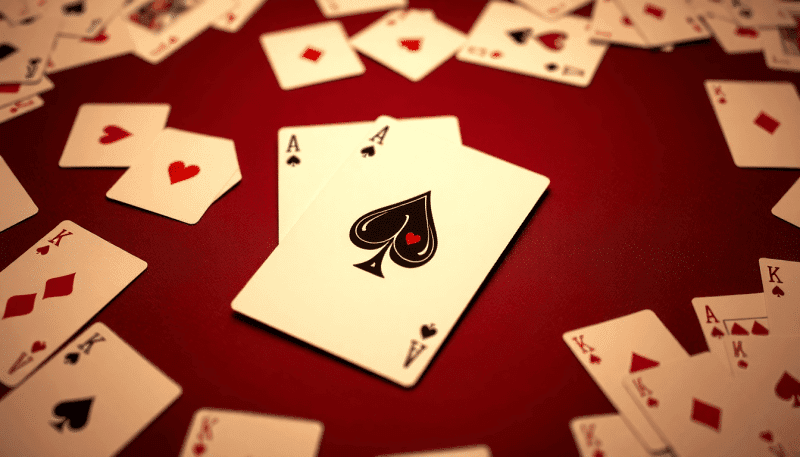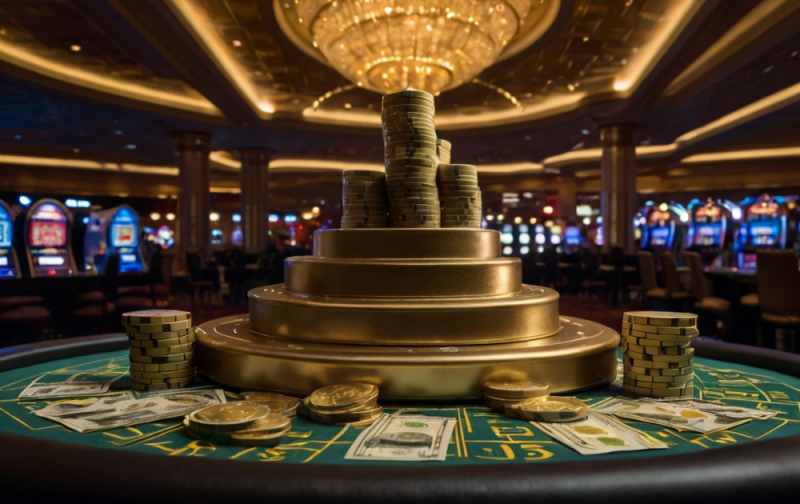Casino luck superstitions have been around since the dawn of gambling. Many players believe that certain actions or objects can bring them good luck and increase their chances of winning. Others believe certain things bring bad luck and should be avoided. This blog post will explore common gambling superstitions and their origins. We’ll also examine whether there’s any scientific evidence to support these beliefs.
Gambling superstitions have been around for centuries. Their origins can be traced back to ancient civilizations. In some cultures, certain numbers are considered lucky or unlucky, while in others, it is specific animals or objects. For example, in Chinese culture, the number eight means luck because it sounds similar to the word for “prosperity.” On the other hand, the number four is unlucky because it sounds like the word for “death.”
Gambling Superstitions
While gambling superstitions may seem irrational, there is a psychological explanation for why people believe in them. In general, humans tend to search for patterns and meanings in random events. When people win while wearing a lucky shirt or carrying a lucky coin, they may attribute their success to the object rather than chance. This illusion of control is the belief that people can control random events.
Lucky Numbers
One of the most common casino luck superstitions is the belief in lucky numbers. Many gamblers have a favorite number they use whenever they place a bet, and some even go so far as to believe that certain numbers are luckier than others. In Western cultures, the number seven is often considered lucky, while in China, the number eight is considered lucky due to its similarity in pronunciation to the word “prosperity.”
Blowing on Dice
Blowing on dice before rolling them is a common superstition in the world of craps. Some players believe that blowing on the dice can change their outcome and increase their chances of rolling a winning combination. However, science defeats this belief, as blowing on the dice does not affect their outcome.
Beginner’s Luck
Many players believe in beginner’s luck, which is the idea that someone new to gambling will have better luck than someone who has been playing for a long time. This belief is based on the idea that a new player is less likely to overthink their bets and may be more open to taking risks, which could lead to more wins. While no scientific evidence supports the concept of beginner’s luck, many gamblers continue to believe in it.
Lucky Charms
Lucky charms are another common superstition among gamblers. Some players carry a lucky charm whenever they gamble, believing it will bring them good luck. These lucky charms can take many forms, from a rabbit’s foot to a favorite piece of jewelry. However, whether a lucky charm affects a player’s luck is debatable, as no scientific evidence supports the idea.
Crossing Fingers
Crossing your fingers is another common superstition believed to bring good luck. Players often use this gesture when they place their bets or wait for the outcome of a game. The origins of this superstition are unclear, but it dates back to ancient times when people believed that crossing their fingers would ward off evil spirits.
Avoiding the Number 13
Many players believe that the number 13 is unlucky. This superstition is so prevalent that many hotels and casinos skip the 13th floor, going straight from the 12th to the 14th floor. The origins of this superstition are unclear, but it may be related to the fact that there were 13 people at the Last Supper or the fact that there are 13 lunar cycles in a year.
Don’t Count Your Money
The saying “Don’t count your chickens before they’re hatched” also applies to gambling. Gamblers believe that counting their money before they’ve won is bad luck. This superstition may have originated from the idea that counting your money could distract you from the game and lead to poor decision-making. It may also be related to unpredictable gambling; a player’s luck can change anytime.
Red is Lucky
In Chinese culture, red is believed to bring good luck and prosperity. Many Chinese gamblers wear red clothing or carry red items when they gamble, hoping it will increase their luck. This belief is based on the idea that red is an auspicious color that symbolizes good fortune and success.
The Gambler’s Fallacy
The Gambler’s Fallacy is the belief that previous outcomes of a game or event will influence future outcomes. For example, if a player has lost several bets in a row, they may believe they are due for a win and continue to bet in the hopes that their luck will turn around. However, this belief is based on a misunderstanding of probability, as the outcome of each bet is independent of previous outcomes.
What’s considered good luck in gambling?
Good luck in gambling varies depending on the culture and personal beliefs of the gambler. However, some common examples of good luck in gambling include:
Winning streaks: When a player is on a winning streak, it’s considered a sign of good luck. It can also lead to increased confidence and feeling in control.
Getting a Royal Flush: In poker and other card games, getting a royal flush is extremely lucky, as it is the highest-ranking hand.
Finding money on the ground: Some players believe that finding money on the ground on the way to a casino is a sign of good luck and an omen of winning.
A lucky number or color: Some players have a lucky number or color that they associate with good luck. They may bet on that number or wear clothing of that color to improve their chances.
Being in the right place at the right time: Sometimes, simply being in the right place at the right time can lead to good luck in gambling. For example, a player might happen to play a slot machine just as he’s about to hit the jackpot.
A lucky charm: Some players carry a lucky charm, such as a rabbit’s foot or a horseshoe, while gambling. They believe that these objects bring good luck.
Conclusion
Superstitions are a part of human nature, and many people hold onto them even in the face of contradictory evidence. While there is no scientific proof that lucky charms or rituals can improve a player’s winning odds, many gamblers believe in them. Whether you follow these superstitions or not, remember that gambling is ultimately a game of chance, and the outcome is largely determined by luck. So, if you’re feeling lucky, try your hand at the casino – but don’t forget to gamble responsibly. Start with free slot games from Blockspin Gaming and get lucky!




